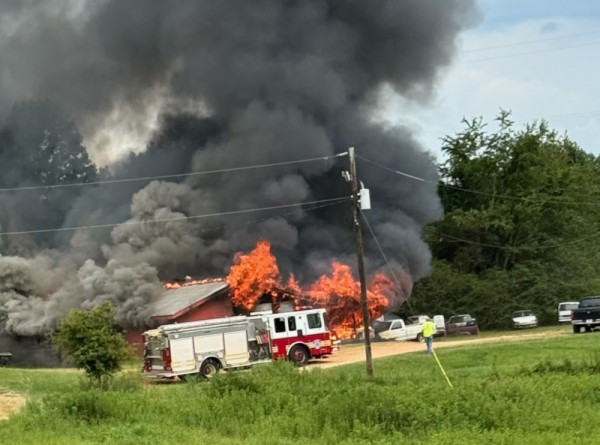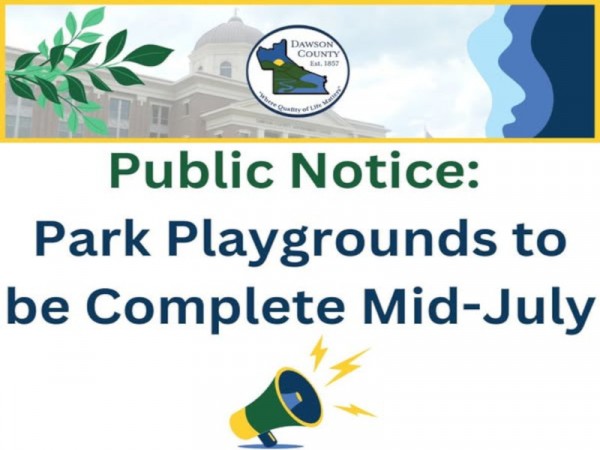ATLANTA - Georgia's lawmakers tend to lower expectations before each session, reminding voters their only constitutional duty is to approve a budget, and then waiting until passing hundreds of other proposals before actually doing so.
But when the session starts Monday, it's safe to chalk up another "must" on their plates: They'll have to figure out some sort of response to the epic drought gripping Georgia. (State Representative James Mills, dean of the Hall County delegation agrees. See separate story).
The question they now face is how to respond to a drought that's threatened Atlanta's water supply, cost thousands of jobs and, forecasters warn, could get even worse next year.
The most likely response is to adopt a long-awaited statewide water plan, Georgia's first. Officials started to work on such a plan in 2004, and the plan's final stages come at an opportune time.
"At the end of this session, there will be a water plan," vowed Carol Couch, director of the state's Environmental Protection Division.
But the plan, which calls for more than $30 million over several years to measure the state's water resources and creates water planning councils to figure out how they should be used, faces a surprising amount of opposition.
Environmentalists who say each district should be drawn along watershed boundaries rather than political ones have succeeded in delaying an earlier vote on the plan. And lawmakers say it is a beginning but promise more changes are to come.
"This is not going to sit on the shelf," said state Rep. Lynn Smith, a Republican who will carry the bill in the House. "It's not set in stone. But what we've done is a start."
Another response by lawmakers is a push to devote state funding to build more reservoirs to "drought-proof" Georgia.
Angry at the federal government for sending water downstream to neighboring states as the drought has worsened, Georgia's legislative leaders have proposed to build more reservoirs to insulate residents against a water shortage.
It has the support of Gov. Sonny Perdue, who said while reservoirs are not a "silver bullet" they could be an option. "When you look at population growth, more storage capacity has to be a part of the solution as well," he said.
But questions still remain over how much funding the state will devote to the plan, whether communities would band together to chip in money for the project and where the lakes would be built.
Some Democrats and environmentalists back a third strategy that calls for water-saving measures, arguing that conservation efforts are a cheaper and more effective way to safeguard water than building new lakes.
State Rep. Karla Drenner, for one, has proposed tightening requirements for shower heads, toilets and faucets in new commercial and residential buildings. It's not the first time she's introduced the plan, but she said a sense of urgency this time around could help.
"We will never be able to predict the weather or an impending drought," she said. "But we can hold ourselves accountable for the amount of we use and the amount of water we waste."
But the measures face stiff opposition from the real estate industry, which bristles at mandates, and others who say the state should focus on broader issues.
House Speaker Glenn Richardson, for one, said lawmakers should target leaks in local water systems that waste as much as 15 percent of water rather than requiring the installation of low-flow toilets, which he dismissed as ineffective.
"You just flush 'em three times," he said of the toilets. "They just give you extra exercise on your right hand. When you have a low flow toilet, what do you do? Flush it again."
To be certain, water won't be the only issue addressed by lawmakers this session.
Richardson will push to revamp Georgia's tax system by eventually eliminating most property taxes and imposing a sales tax on virtually all services. House leaders will likely try to rewrite tough new sex offender laws that were overturned by the Georgia Supreme Court this year.
Competing plans have been pitched to change the way new road projects are funded, lawmakers are looking at different ways to pay for trauma care and indigent defense, and there could be another push to allow guns in workplace parking lots and repeal a ban on payday lenders.
But those scores don't necessarily have to be settled this year. There is, however, a growing sentiment that the water crisis does.
"There are some absolutes we need to do: Water," said Richardson. "And we must take action while the drought is still on our minds. Because time has proven that when it starts raining, it won't be on our minds."
...............................................................................
Major issues, other than the drought and water management, lawmakers will likely consider during the session:
TRAUMA CARE: The mounting debt faced by Atlanta's public trauma center has prompted a legislative debate. Grady Memorial Hospital, which serves many of the region's uninsured and severely injured, is facing a massive deficit that threatens to put it out of business. The hospital's hoping for a state bailout, and lawmakers are considering tacking an extra $10 fee on vehicle tag renewals and a steep fine on excessive speeders to fund trauma care in Georgia.
TAXES: House Speaker Glenn Richardson has been pushing for an overhaul of Georgia's tax system since early last year. His current plan would eliminate school property taxes and replace them with a 4 percent state sales tax on groceries, lottery tickets and services, like yard work and hair cuts. There's no telling how it will fare in the Senate, where lawmakers are pushing their own proposals to curb the growth of property tax bills by capping residential assessments.
TRANSPORTATION: Lawmakers will likely have to choose between two competing traffic plans. One calls for a 1 percent sales tax hike to raise $22.2 billion over 10 years for projects that range from new highways in metro Atlanta to paving dirt roads in rural Georgia. The other, backed by Atlanta business leaders, allows multiple counties to band together and propose new taxes that would fund transportation projects in their districts.
SEX OFFENDERS: After the state's top court overturned strict residency requirements that limited where sex offenders lived, lawmakers will try their hand at the bill once more. The new version allows sex offenders who own their own homes to stay if a center where children gather later opens up in the neighborhood. The overturned law, considered among the nation's toughest, banned sex offenders from living within 1,000 feet of schools, churches and other places where children gather.
PUBLIC DEFENDER: State leaders will have to figure out a way to handle Georgia's cash-strapped public defender system, which warned it could face a one-month furlough without an infusion of cash from the state. The system has been on the brink of a budget crisis for years, but it's particularly bad this year because of the soaring defense costs in the trial of accused Atlanta courthouse gunman Brian Nichols. Already, the council has cut off funding for Nichols' defense, a move which has brought his trial to a halt.
---
On the Net:
Georgia Legislature: http://www.legis.state.ga.us
Thursday
July 3rd, 2025
8:42AM

















